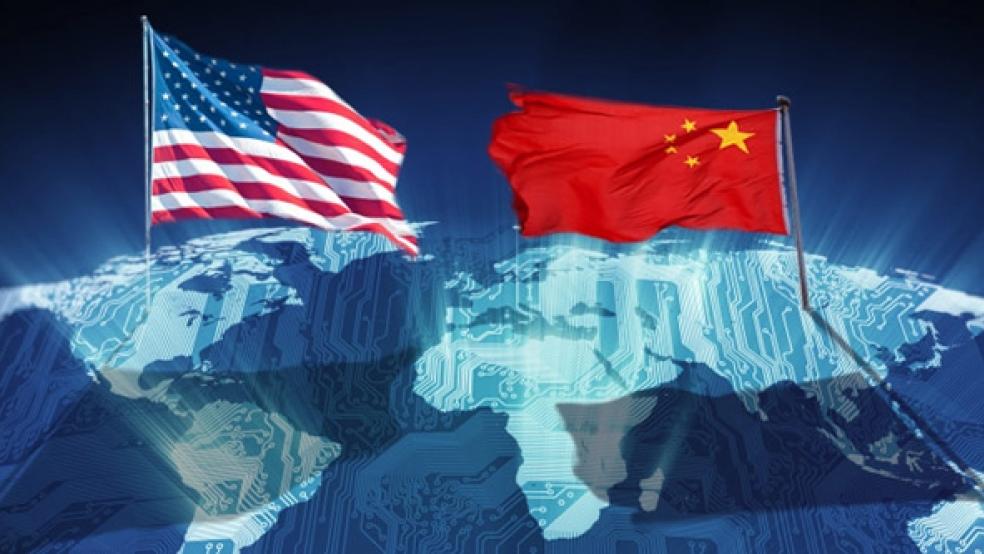The second presidential debate featured Mitt Romney and Barack Obama going nose to nose over who would be tougher on China and other countries over their unfair trade practices. But by adopting a narrative that places the blame for our problems on other countries, President Obama is playing into the hands of those who’d like to make significant cuts to social insurance programs that protect working class households.

For the most part, the response of economists to the candidates’ exchange over trade was highly negative. Economists are strong advocates of open, unimpeded trade between nations, and with all that economists have done to promote the idea that specialization and trade is mutually beneficial – an argument with the public that has persisted for hundreds of years how could the candidates regress into this primitive mercantile thinking?
But there are qualifications to the conclusion that reducing trade barriers helps everyone. Most of the exceptions are interesting theoretical curiosities that are considered unimportant for real world applications, but not all of the qualifications are so easily dismissed.
First, although it’s generally possible to make everyone better off as a result of trade, there is no guarantee that this will happen. If, for example, most of the gains from globalization flow to the top of the income distribution while most of the costs fall on working class households – costs such as jobs that move offshore and reductions in job benefits in the name of international competitiveness – then there are clear winners and losers.
Second, unfair trade practices, e.g. currency manipulation, can also skew the costs and benefits of trade. This is particularly important when the economy is in a recession and people who lose their jobs due to unfair trade practices have considerable difficulty finding new employment.
In light of these qualifications, both of which seem to apply to our present situation, what is wrong with Obama’s tough talk about China? Mitt Romney’s threats toward China are a bit of a surprise given the strong support of open markets Republicans have expressed in the past. It seems more like pandering for votes than a serious policy proposal. But isn’t Obama defending the working class?
There wouldn’t be anything wrong with it if it was perceived by the public as nothing more than an attack on China over its trade practices. Economists differ on whether China should face sanctions as a result of its currency policy, but with economists such as Paul Krugman on the side of those who believe China has crossed the line, it’s hard to say the administration is out of bounds in making this charge (though more recently Krugman has backed away from this charge, so this defense of the administration is a bit shaky).
The problem is that the public does not see this as a response to an individual country that refuses to play by the rules. Instead, it is viewed as a more general statement about why the working class has faced difficulties over the last few decades. It says those difficulties have nothing to do with our failure to give the working class the protections it needs against increasing job insecurity due to globalization and technological change, or with our failure to make sure that the benefits of globalization are shared equitably instead of concentrated in the hands of the few. According to this narrative, our problems are external. China and other countries are stealing our manufacturing jobs with their unfair behavior, and stopping them from doing this is the key to improving our future economic outlook.
That’s not correct. There are good arguments about why we need to take steps to change China’s behavior, but closing our doors and hiding from the rest of the world is not the solution to our problems. Trade has the potential to make everyone better off, and our main problems are not due to unfair currency manipulation. The difficulties working class households have faced in recent decades are due to the highly inequitable distribution of the benefits from globalization, and our inadequate response to the growing uncertainty that comes with globalization and technological change.
Blaming our troubles on external causes and implying that all will be well once these causes are eliminated allows the wealthy winners from globalization to escape the taxes that are needed to provide the social protections workers need in the global economy, and to ensure that the gains from globalization are shared equitably. President Obama needs to make it clear that helping the working class will take a lot more than just forcing China to change its ways. The health, education, job security, retirement, and other needs of the working class must be addressed – success in the global economy requires the best, most productive workforce in the world – and that will require us to look inward at our own character as a nation instead of blaming others.
Pointing fingers at other countries and demanding change may be politically effective, but the real change begins at home.






